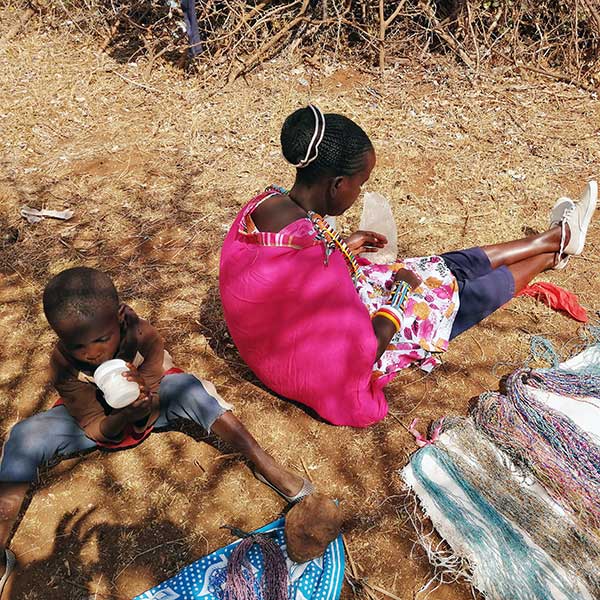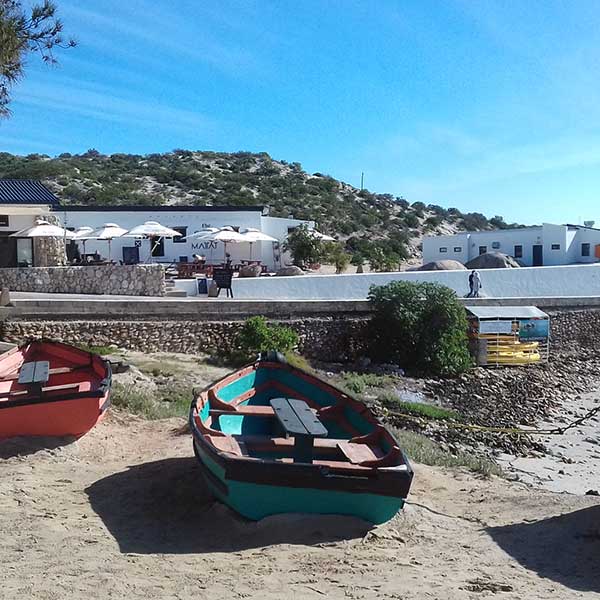Over the past five years researchers in the Department of Work, Employment & Organisation have been involved in innovative, and often participatory, research addressing key issues of work and employment linked to the Sustainable Development Goals. The research also addresses the issues of power and privilege towards more equitable futures.
Beneficiaries
The work has a particular focus on workers rendered most vulnerable to exploitation in a range of geographic and work settings. It hinges on a commitment to co-production knowledge towards understanding and transforming related injustices across academic and geographical borders.
Researchers are attentive to the emerging concerns among collaborators in the Global South of 'sustainable development' as a synonym for further, inequitable resource capture and take a critical approach to understand often less visible socio-ecological implications and deepening of inequalities linked to current developments.

Collaborators/partners
The following partners have most recently been involved through the following research projects:
- So who IS building sustainable development? (ESRC)
- Pesticides, Work and Public Health (GCRF)
- Social impacts, exposure and resilience to the pandemic COVID-19 between Munduruku indigenous and traditional communities in the Brazilian Amazon (Pará)
- the participation of Work, Employment & Organisation staff in the Centre for Political Economy of Labour
Mauritius
- University of Mauritius
- Confederation of Private and Public Sector workers (CTSP)
The Philippines
University of the Philippines and community stakeholders
Kenya
Moi University
South Africa
- University of Johannesburg
- Human Sciences Research Council
Brazil
- University of São Paulo
- UNESP-Presidente Prudente
- Federal University of Goias
- Federal University of Para
- Federal University of Mato Grosso
- Builders and Wood Workers International
- Latin American and Caribbean Office
- Inter-Union Department of Statistics and Socio-Economic Studies (DIEESE), Brazil
- Observatory of International Immigration (OBMigra)
- Ministry of Labour, Programme for the Eradication of Slavery, Brazil
Ghana
- Cape Coast University
Sustainable Development Goals
Projects touch on the following Sustainable Development Goals (SDGs):
- Goal 1: End poverty in all its forms everywhere
- Goal 3: Ensure healthy lives and promote well-being for all at all ages
- Goal 10: Reduce inequality within and among countries
However, our projects substantively consider SDG 8 - promote inclusive and sustainable economic growth, employment and decent work for all.
It looks to:
- achieve full and productive employment
- achieve decent work for all
- protect labour rights
- promote safe and secure working environments for all workers
Sustainable Development Goal themes
- decent work and economic growth
- reduced inequalities
- life on land
- diversifying from traditional fishing and agrarian livelihoods
- looking into pathways out of poverty
- giving voice to marginalised communities
Impact
Recent impacts include:
- COVID-19 intervention with indigenous, riverine and African-descendent communities in Amazon towards demarcation of territory and resistance to land and pandemic invasion
- COVID-19 research with micro-tourism businesses in South African townships
- EU-Brazil hazardous pesticide trade intervention
- current development of legal protocol with key Brazilian agencies towards protecting migrant rights
- exploring methodologies to give greater voice to nomadic and indigenous communities in Kenya
- researching community-led routes to economic diversification among fishing communities in Ghana
The health and well-being of migrant workers
An ongoing research project in Mauritius on 'The health and well-being of migrant workers' has identified key concerns around access to health and well-being infrastructures at work and in public hospitals.
An important outcome of the first phase of the project in 2018 was the launch of a translated pamphlet explaining migrants' right of access to universal free healthcare services and providing information about mental health and well-being.

Livelihood diversification in coastal communities
A pilot study on livelihood diversification in coastal communities was completed. This investigation explored livelihood diversification from primary economic activities into tourism employment.
One of the case study areas was the fishing village of Paternoster on the West Coast of South Africa. There is a gap with respect to research on livelihood diversification into tourism, the impacts on individual and community wellbeing, and its role in addressing the Sustainable Development Goals, particularly in relation to poverty reduction and stimulating local economic development through decent work in marginalised and/or impoverished rural areas.
There is potential to expand the scope of this work to include communities in other areas in Southern/ Sub-Saharan Africa within coastal and agrarian contexts. This research should inform tourism planning and policy to ensure the benefits of tourism growth is spread more equitably towards inclusive local economic development.

Challenges & lessons learned
Recent mobilisation of Black Lives Matter, and related questions over historical power and privilege, invite further commitment to establish genuinely equitable partnerships across borders to address global inequalities and concerns.
Researching vulnerable groups in the context of precarious work requires strong partnerships with grassroots organisations and a real dedication to co-creation from the onset of research design and defining solutions. Challenging mainstream Western research methods as the basis for engaging with marginalised communities.